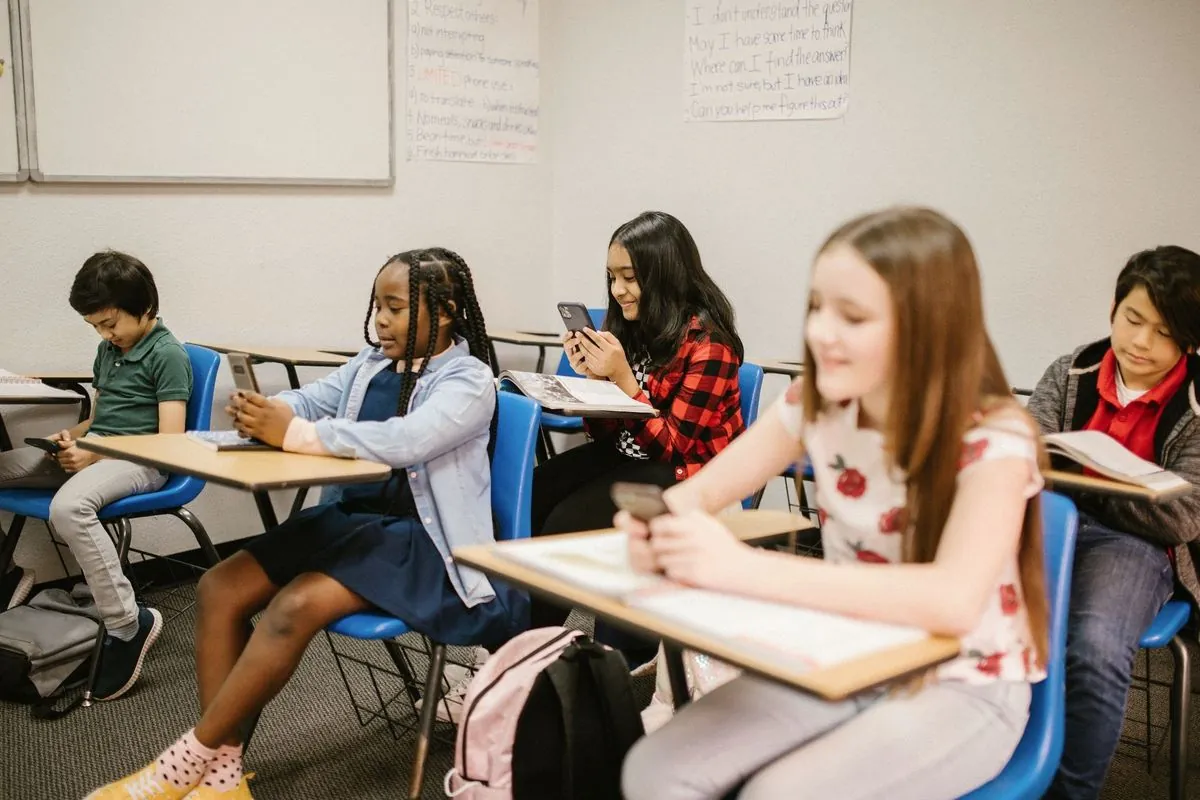London School Pioneers 'Brick Phone' Policy, Bans Smartphones
A top Church of England school in London has banned smartphones, allowing only basic "brick" phones. The move aims to protect students from social media risks and promote healthier digital habits.

In a groundbreaking move, a leading Church of England school in London has become the first in Britain to implement a smartphone ban while permitting basic "brick" devices. This initiative, spearheaded by David Smith, head teacher at the Fulham Boys School, aims to shield pupils from the potential dangers of social media and promote healthier digital habits.
The policy, introduced in the current term, allows students to use simple phones for essential communication with parents but restricts access to smartphones. This decision comes in response to growing concerns about the impact of excessive smartphone use on young people's mental health and behavior.
A survey conducted by the school revealed that 97% of its 820 pupils already owned smartphones, with 56% acquiring them at ages 9 or 10. These statistics align with global trends, as the average age for a child to get their first smartphone is 10 years old. Furthermore, studies indicate that 50% of teens feel addicted to their mobile devices, highlighting the urgency of addressing this issue.

Smith believes that children should not have access to smartphones until they reach 16 years of age. He advocates for educating students about the risks and benefits of social media before allowing its use, drawing parallels to sex education. This approach is supported by research showing that 71% of parents believe mobile devices have more negative than positive effects on children.
The school's new policy permits pupils aged 11 to 16 to bring basic phones for limited use, such as informing parents of their safe arrival and departure. Unauthorized phone use results in a six-week confiscation period. For students aged 16 to 18, smartphones are allowed with strict usage restrictions during school hours.
Smith acknowledges that this experiment may take 5 to 10 years to yield significant results. However, he remains optimistic about its potential impact on students' well-being and academic performance. The initiative addresses concerns about "toxic masculinity" promoted by social media influencers, as well as issues related to pornography, bullying, and body image content that can fuel eating disorders.
The global smartphone market, valued at $484.81 billion in 2022, has revolutionized communication since the first mobile phone call was made in 1973. However, the average person now spends about 3 hours and 15 minutes on their phone daily, raising concerns about decreased attention spans and productivity.
Esther Sharma, an academic researcher whose son attends the school, expressed support for the policy. She opted for a basic phone for her 11-year-old, citing concerns about internet access and social media apps. This decision aligns with the 62% of parents who, according to a survey by HMD (makers of Nokia phones), want their child's school to remove or ban smartphones.
As the debate on smartphone use in schools continues, some countries have already implemented laws restricting their use to improve focus and reduce cyberbullying. The Fulham Boys School's initiative may serve as a model for other institutions seeking to balance technological advancement with student well-being.
"My view is, as soon as you give a smartphone to a child, you're choosing to take away their childhood, you're opening a door that you can't shut into the realities of the world that we live in."
As this pioneering policy unfolds, educators, parents, and policymakers will be watching closely to see if it can effectively address the challenges posed by smartphone use among young people while promoting a healthier relationship with technology.


































